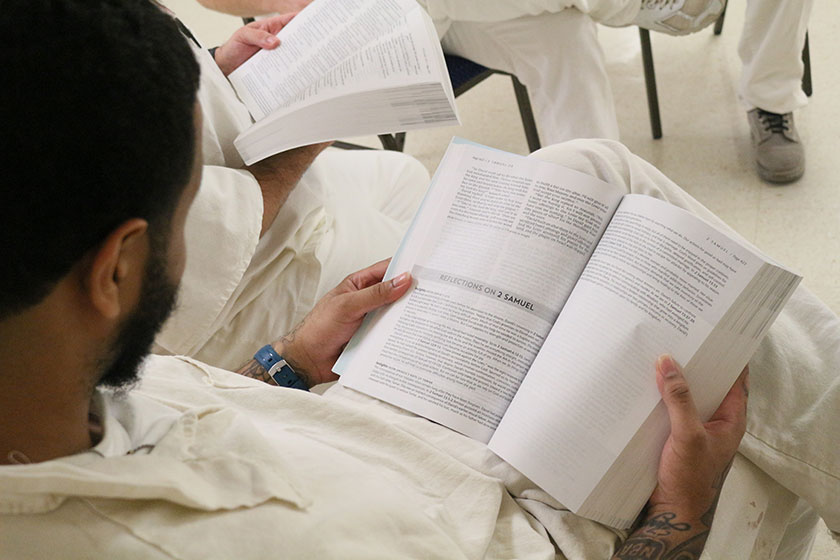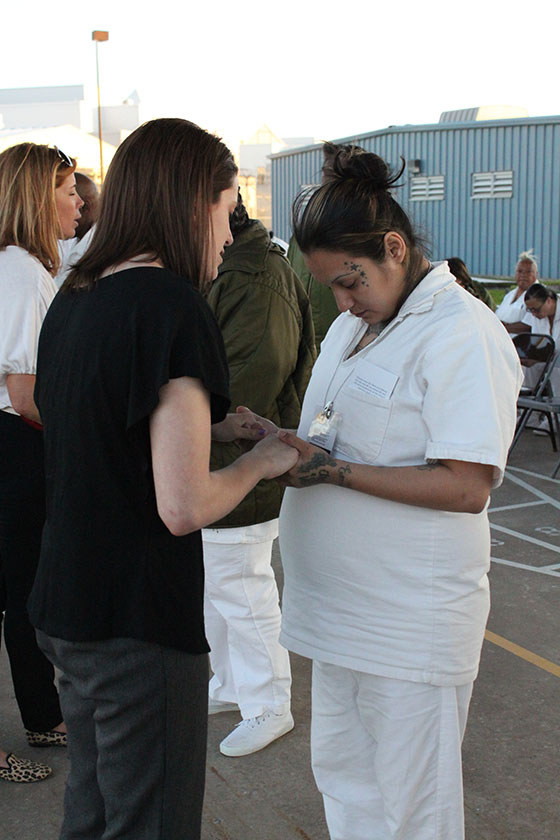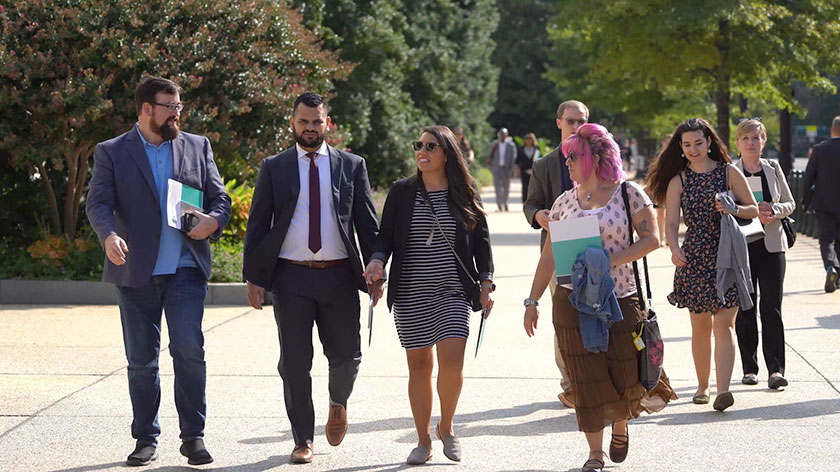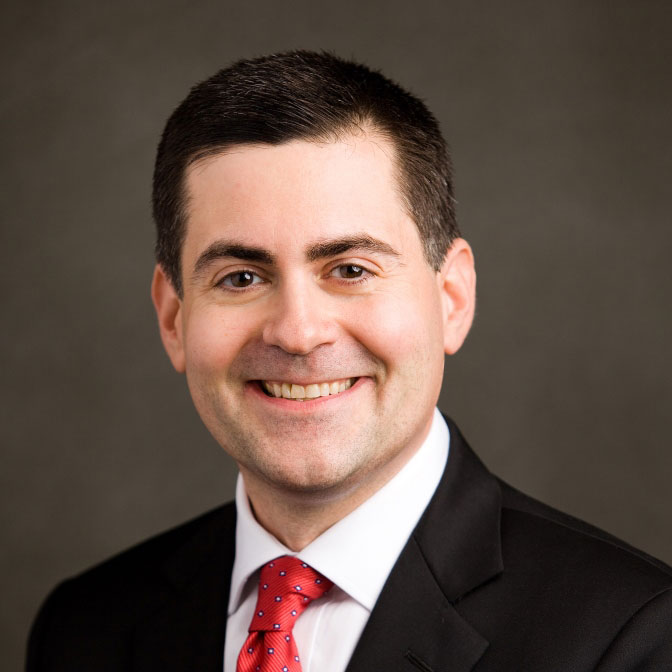Dr. Russell Moore shares with the Justice Declaration Symposium why it is important for Christians to serve in prison ministry.
The following is Dr. Moore's speech at the 2019 Justice Declaration Symposium held by Prison Fellowship at the Museum of the Bible. It has been edited for clarity and length.
ENGAGING THE CHURCH IN JUSTICE THAT RESTORES
KEYNOTE SPEECH AT THE JUSTICE DECLARATION SYMPOSIUM
September 30, 2019
One of the biggest challenges that many of us in ministry have is dealing with multiple constituencies at one time.
Pastors, you're going to have some church members who will say, "Well, these are people who have done bad things, so why would we invest our time and effort in ministering to them?"
You're going to have others who will say, "Well, if we get involved in this, we're going to be distracted. Distracted from our mission, from the gospel, from discipleship."
There will be people who will say, "Well, if you're engaging this at all on the level of policy, you're becoming too political."
And still others who will say, "Unless you have a detailed policy on every aspect of criminal justice, then you're not political enough."
What tends to happen is that when pastors start to engage with these questions as the world does, we want to give up and say, "I can't press forward with this anymore. I don't know what to do."
But in the Gospel of John, we see two critically important truths for us as the church engaging in these and other issues. Our first is the priority of the kingdom.
JOHN 18:28–40
JESUS BEFORE PILATE
Then they led Jesus from the house of Caiaphas to the governor's headquarters. It was early morning. They themselves did not enter the governor's headquarters, so that they would not be defiled, but could eat the Passover. So Pilate went outside to them and said, "What accusation do you bring against this man?" They answered him, "If this man were not doing evil, we would not have delivered him over to you." Pilate said to them, "Take him yourselves and judge him by your own law." The Jews said to him, "It is not lawful for us to put anyone to death." This was to fulfill the word that Jesus had spoken to show by what kind of death he was going to die.
MY KINGDOM IS NOT OF THIS WORLD
So Pilate entered his headquarters again and called Jesus and said to him, "Are you the King of the Jews?" Jesus answered, "Do you say this of your own accord, or did others say it to you about me?" Pilate answered, "Am I a Jew? Your own nation and the chief priests have delivered you over to me. What have you done?" Jesus answered, "My kingdom is not of this world. If my kingdom were of this world, my servants would have been fighting, that I might not be delivered over to the Jews. But my kingdom is not from the world." Then Pilate said to him, "So you are a king?" Jesus answered, "You say that I am a king. For this purpose I was born and for this purpose I have come into the world—to bear witness to the truth. Everyone who is of the truth listens to my voice." Pilate said to him, "What is truth?"
After he had said this, he went back outside to the Jews and told them, "I find no guilt in him. But you have a custom that I should release one man for you at the Passover. So do you want me to release to you the King of the Jews?" They cried out again, "Not this man, but Barabbas!" Now Barabbas was a robber.
English Standard Version
THE PRIORITY OF THE KINGDOM
In this passage, Pilate has a problem that is primarily political. He wants to deal with a problem, he wants to have peace, and he doesn't want any problems for himself with Rome. You can see Pilate almost pleading with Jesus, "Give me a way to get out of this with you!"
And what does Jesus say? "My kingdom is not from this world."
What Jesus is saying here is that when He pictures the kingdom, He's picturing a kingdom that doesn't operate like the government, or like our own families, or even in our own hearts and lives.
There's a type of activism today that assumes the posture you need to have is one of frantic outrage. Act now or disaster; or act now, and we will have a final victory. That all these things are right around the corner. But that breeds cynicism.
That is not the kind of kingdom that Jesus has announced. [His] kingdom isn't divided up between winners and losers but into those who give their lives away and those who do not.
When Jesus teaches what His vision of the kingdom is like, it doesn't make sense because that is not the way the world works. Yet, when we are shaped and formed by the kingdom of God, that means that we're going to have a different vision—a different view of what matters.
And a different vision and a different view of who matters.
WHAT IS GOD'S VISION FOR JUSTICE?
God calls His people to seek justice. But given the complexities of our criminal justice system, how can followers of Jesus have a clear understanding of criminal justice issues and take action to promote peace and restoration?

'The kingdom of God is not divided up between winners and losers but into those who give their lives away and those who do not.'
THE PRIORITY OF DISCIPLESHIP
It's easy to forget about the incarcerated. It's easy to forget about the families of those who are incarcerated. It's easy to forget about those who have been victimized by crime. But if we are shaped and formed by Jesus Christ, then we pay attention to those voices.
We understand our sister in Christ who is serving in a federal penitentiary right now is not a charity project. She is a joint-heir with Christ and a future ruler of the universe under Him.
That little boy whose dad is in prison right now and who wonders if he also bears a stigma is not a charity project—he is made in the image of God and has an inheritance that comes with Jesus Christ.
Often there are people within the Church who will get that first part—the priority of the kingdom—right. They then look around and see how easy it is for Christians to be distracted: with temporal questions or idolizing their political identity. Some will see that and recognize that's not the way of the kingdom of Christ. [They will] point to this passage of Scripture, "My kingdom is not of this world," and declare that all we must do is preach the Gospel. All we must do is focus on the kingdom that is waiting for us, and everything else will work itself out.
That is not what Jesus is doing in this passage.

'Remember: Our incarcerated brothers and sisters are joint-heirs with Christ.'
IN THE KINGDOM OF GOD
In the kingdom of God, to be a faithful disciple is to disciple people to be able to follow Jesus in all various areas of life.
- We disciple people so that they can be a Christ-honoring employee or employer.
- We disciple people so that they may be a Christ-honoring husband or wife, or son or daughter.
- We disciple people so that they can serve in all of the various places that God has given to them.
We don't have to have an answer to every question. We are shaping and forming consciences and intuitions under the Word of God that says, "This is what it means to follow Jesus in these situations."
- We don't have a concordance that answers every question.
- We don't know what the best policy is to deal with repeat offenders.
- We don't know what the exact right church program is to minister to families of those who are incarcerated.
- We don't often know what the exact right way is to minister to those who have been victimized by crime.
What we do know, though, is that we have an accountability before God. Do we act in those capacities in a Christ-like way, or in a non-Christ-like way? Do we try to ignore our responsibilities, or do we seek to act justly?
WHY CHRISTIANS SHOULD ADVOCATE FOR JUSTICE THAT RESTORES
Drawing from Biblical examples, former-prisoner-turned-pastor and advocate Quavadis Marshall provides an in-depth look at the Christian case for advocacy.

'There is a great multitude coming after us that we do not see.'
BEARING GOOD FRUIT
Sometimes, when we see Christians who don't have the same level of enthusiasm that we have, we want to give up and say, "Well, people just aren't interested in this. People just don't get it." We are like Elijah in the wilderness: "I and I alone am here working in this field."
Yet God says to us exactly what He said to Elijah: That there is a great multitude coming after us that we do not see.
When we start to understand the priority of seeking first the kingdom of God—when we start coming into these debates not like everyone else—angry, frantic, scared, manipulative, but as the apostle Paul says, "Openly bearing witness to the priorities that Jesus has given to us"—then in the long run that bears great fruit.
There are going to be a lot of people who, as you are working in prison ministry and justice reform, are going to watch you. They will ask you,
- Do you really believe that—the Gospel?
- Do you really believe that—the love of Christ?
- Do you really believe that—the fellowship of the Church—is for somebody like me?
And our answer in everything that we do—in designing ministries, in educating people, in advocacy—has to be communicating in, as best we can, a Galilean accent, "Yes. That's what the kingdom of God is like."

ABOUT DR. RUSSELL MOORE
Dr. Russell Moore is the president of the Ethics and Religious Liberty Commission at the Southern Baptist Convention, the moral and public policy agency at the nation's largest Protestant denomination.
Dr. Moore is the author of several books, including Onward: Engaging the Culture Without Losing the Gospel and The Storm-Tossed Family: How the Cross Reshapes the Home.

YOU CAN HELP BREAK THE CYCLE OF CRIME
God is raising up local churches and volunteers just like you to walk alongside people inside and outside of prison on their road to restoration.
Local churches are uniquely equipped and called for prison ministry. There are many ways to get started, and we're here to help. Explore our curated list of tools and resources.